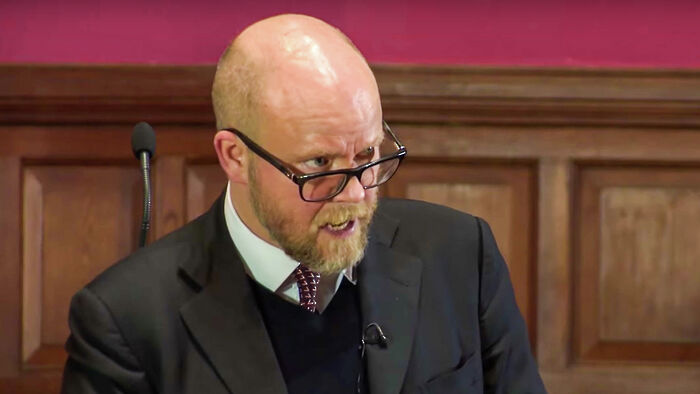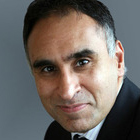Everything you need to know the Office for Students, the new university watchdog
Bad publicity surrounding appointee Toby Young has already hit the fledgling HE regulator – who sits on its board, and what will it do?

On Monday, the Office for Students (OfS) – a new, government-created regulator designed to champion the interests of student in higher education – came into effect.
The OfS has been set the task of implementing parts of the government’s controversial Teaching Excellence Framework (TEF), which has thus far notably produced a proposed increase in tuition fees, and the introduction of a ranking system for UK universities.
Higher education (HE) reform is a complex process, not least because of the huge diversity of stakeholder organisations, many of which have overlapping interests. Arguments about value for money for students have long been at heart of HE debate, particularly spurred by the increase in fees to £9,000 a year which took place in 2012.
Recently, those discussion have become increasingly tied up with other debates, particularly surrounding pay for senior university staff, and issues surrounding free speech on university campuses.
How does the OfS fit into this?
The OfS is intended at its core to promote choice for students, and to ensure that those who attend universities in the UK are receiving good value for money on their education, with the aim that it be: “innovative in its approach to student participation, success and employability”. In the light of recent debates however, the Department for Education (DfE) has said the OfS “will also hold universities to account over issues such as vice-chancellor pay and free speech.”
Once it is fully operational, in April this year, the OfS will replace two existing HE bodies: the Higher Education Funding Council for England (HEFCE), which is responsible for distributing funding across HE providers; and the Office for Fair Access (Offa), which works with HE providers to develop access targets.
Jo Johnson, the universities minister, said the OfS “will rightfully put the interests of students at the heart of regulation and play a pivotal role in reforming one of our nation’s greatest assets – the higher education sector.”
The OfS will be a regulator, which means it will have the ability to report and make recommendations, rather than extensive direct powers. The DfE says the new body will “shine a light on the grade inflation that we have seen tearing through the system and play a central role in pressing institutions to respect student’s rights and comply with consumer law consistently across the sector” through its implementation of TEF.
Who is involved?
The most visible part of the OfS are the 15 members who make up its board, led by chief executive Nicola Dandridge and chair Sir Michael Barber. The board members come from a range of backgrounds, including businesses and other HE bodies.
Six of the new appointees are being carried over from HEFCE, all of whom joined the funding body less than a year ago – usually from business roles. Overall, this means that the board’s experience is more grounded in business than education.
The National Union of Students’ (NUS) president, Shakira Martin, and its vice-president for higher education, former CUSU president Amatey Doku, both applied and were rejected.
Instead, the only student representative on the board is Ruth Carlson, an engineering student at the University of Surrey, whose credentials include working as a course representative and being president of her university’s women’s football club. Dandridge has previously said that she wants to set up a ten-person board of students, chaired by Carlson, to inform how the OfS is set up.
Who’s who in the Office for Students?
What’s the controversy?
Most of the furore is surrounding Young – particularly with regards to comments he has made on Twitter in the past about women. Young has claimed that criticisms of him arise primarily because he is a Conservative, but he is mainly being castigated based around comments he has made on social media, and the DfE’s initially misreporting of his qualifications – incorrectly claiming he had held a post at Cambridge. Young’s defenders have said that his position as an HE outsider puts him in a better place to advise, stressing the value of outside opinions – though by this measurement several most of the board’s members offer a similar viewpoint. On 9th January, Young resigned from the OfS, following substantial pressure and criticism.
NUS representatives have also complained about the OfS’s lack of student members, saying that the union – which claims to represent all of Britain’s more than two million HE students – should have been given a role on the board.
Which one isn’t on the board of the new Office for Students?
- Kay Sidebottom (@KaySocLearn) 1 January 2018
1. Toby Young
2. A former executive of HSBC bank 3. A managing director of Boots.
4. A representative from the National Union of Students.
Yep it’s 4. 😳https://t.co/gnDZRRgrUb
In addition, the board does not have a representative from the Universities and Colleges Union (UCU), which represents staff, or anyone currently working in further education. Labour’s shadow higher education minister, Gordon Marsden, called the new appointments a “huge failed opportunity”.
Update: This article was updated on 4th January to correct the photograph and biography of Simon Levine. Levine specialises in intellectual property, media and sports law, not VAT law. A incorrect headshot had also been used.
Update: This article was updated on 9th January following the resignation of Toby Young.
 News / Fitz students face ‘massive invasion of privacy’ over messy rooms23 April 2024
News / Fitz students face ‘massive invasion of privacy’ over messy rooms23 April 2024 News / Climate activists smash windows of Cambridge Energy Institute22 April 2024
News / Climate activists smash windows of Cambridge Energy Institute22 April 2024 News / Copycat don caught again19 April 2024
News / Copycat don caught again19 April 2024 News / Emmanuel College cuts ties with ‘race-realist’ fellow19 April 2024
News / Emmanuel College cuts ties with ‘race-realist’ fellow19 April 2024 Comment / Does Lucy Cavendish need a billionaire bailout?22 April 2024
Comment / Does Lucy Cavendish need a billionaire bailout?22 April 2024






















